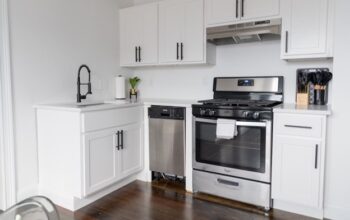Buying a home feels like a marker everyone should have in their life. Nearly sixty-five percent of Americans buy a home, making it the biggest purchase in most of our lives. Unfortunately, houses are expensive, and even if you’re getting a mortgage, putting down around six percent means you need to have around fifteen thousand dollars on average. With the average person having a savings account of about five thousand dollars, this leaves a lot of us short on cash.
Here’s how to save up for your first home, and make that big step forward.
Look Over Your Budget
The first step to saving is to figure out how much you’re making and spending now, and how much you think your down payment will be. If you’re making forty thousand dollars a year, and you have a downpayment of fifteen thousand- but monthly expenditures of around two thousand- give yourself some wiggle room and put about 2,500 dollars into savings every month.
In this budget, you could save up for your down payment within six months.
Consider how much you’re spending and decide if most items are important enough to keep on your budget.
Consider Selling Off Older Things
Everyone has clutter that they can clear out. If you’re staring down a pile of things you don’t need, from furniture to books, it’s time to sell what you don’t need. One of the significant steps to buy a house is to whittle down your possessions to what you need so that you don’t bring clutter and mess with you.
Monetizing Your Hobbies
Seventy percent of Americans have a creative hobby that lets them make things. Whether your passion is painting, building websites, or crochet, there’s a way to make income off it. It may not be as much as you make at your job, but it’s income you wouldn’t have otherwise that you can make while enjoying yourself. The better you get, the more you can charge: make sure that every cent makes its way to savings.
Asking for Help
If you’ve exhausted every other option, and still desperately want a home, it’s time to ask for help. Many ask their parents to help with the down payment, while others have turned to crowdfund when times have become desperate.
If you, unfortunately, don’t know anyone who could help you, you could even consider getting a loan for the down payment. There’s a government program by the Federal Housing Administration that allows loans for people making a downpayment of at least 3.5%. This loan has to get paid back, but in the meanwhile could enable you to have a home of your own while you pay it off. There are income restrictions on this, but it doesn’t hurt to check it out.
If that doesn’t work for your situation, you can look for a traditional loan. Keep your credit score in mind, along with how much money you make every month, and how much your house payment will be. If you take out a loan, it’s essential to pay it off as quickly as possible.



